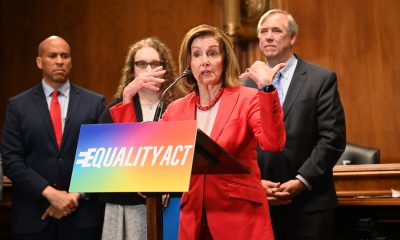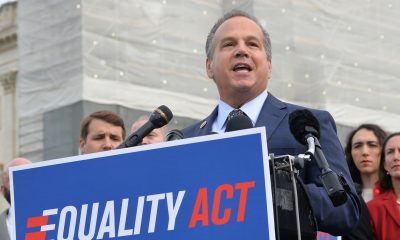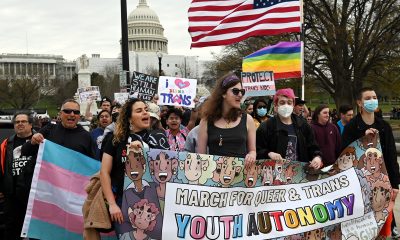National
Cicilline fends off challenger in R.I. primary
Election results yield mixed bag for marriage equality prospects
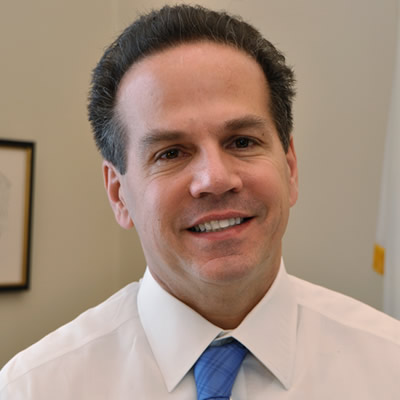
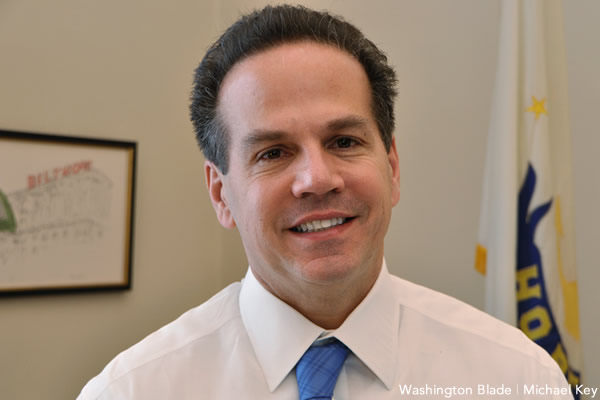
Gay Rep. David Cicilline defeated his challenger in the Rhode Island Democratic primary on Tuesday. (Blade file photo by Michael Key)
Gay Rep. David Cicilline (D-R.I.) defeated his challenger, businessman Anthony Gemma, to win the Democratic nomination to continue to represent Rhode Island’s 1st congressional district in the U.S. House in Tuesday’s primary.
Local media outlets called the race for Cicilline about an hour after polls closed at 8 p.m. in Rhode Island. With 98 percent of precincts reporting, Cicilline held 61 percent of the vote, compared to the 31 percent claimed by Gemma and 8 percent won by another candidate, Chris Young.
Cicilline faced criticism during the race — even though he’s running in a overwhelmingly “blue” state — as a result of financial difficulties facing the city of Providence, R.I., where Cicilline served as mayor before running for Congress.
A report commissioned by the City Council last year blamed Cicilline’s administration for a lack of transparency and for making a series of moves – like tapping into Providence’s rainy-day fund – without councilors’ approval. The lawmaker apologized in April, saying he should have been more forthright about the financial condition of the city.
Still, Cicilline retained support heading into the primary. The lawmaker was once again endorsed by the Gay & Lesbian Victory Fund. In new campaign ads, former U.S. Rep. Patrick Kennedy, who once held the seat now held by Cicilline, vouched for the out lawmaker’s commitment to public service.
Sexual orientation did come into play during the Democratic primary. According to the Associated Press, Anthony Sionni, an unpaid campaign staffer for the Gemma campaign, compared the openly gay lawmaker on Twitter to convicted child molester and former Penn State coach Jerry Sandusky, saying there’s “nothing wrong with smearing a liar, thief, crook, Sandusky copy cat.” The state Democratic Party had called for Gemma to fire Anthony Sionni, apologize to Cicilline and disavow the message. In response, a Gemma campaign spokesperson reportedly said the tweet was “inappropriate” and Sionni agreed to leave the campaign.
Cicilline was running against a primary opponent who largely self-financed his campaign. According to Federal Election Commission reports, 80 percent of the $315,000 that Gemma raised was from him contributing or lending his money to his own campaign. In comparison, all the $1.7 million that Cicilline raised for his campaign was the result of outside contributions.
But Cicilline isn’t out of the woods in his bid to retain his U.S. House seat. He’s facing a challenge in the general election from Republican Brendan Doherty, a retired high-ranking police officer and former superintendent of Rhode Island’s Department of Public Safety.
According to a poll published by Rhode Island’s WPRI late last month, 52 percent of Gemma supporters said they’d back Doherty in the general election if the Democratic challenger lost the primary. Compared to the $1.7 million that Cicilline has raised, Doherty has $1.1 million in total net receipts. About five percent, or $50,000, of Doherty’s net receipts are from self-financing.
Chuck Wolfe, the Victory Fund’s CEO, said the choice is clear on LGBT issues heading into the general election because Doherty supports the Defense of Marriage Act, an anti-gay law that prohibits federal recognition of same-sex marriage.
“We’re pleased that Rhode Island Democrats have once again chosen David Cicilline to represent them in Congress,” Wolfe said. “Now voters will face a clear choice this November between a persistent champion for LGBT equality, and an opponent who supports the Defense of Marriage Act, which makes life harder for so many American families.”
The Victory Fund is citing the website Electful.com, which keeps track of candidates’ positions on issues, as the source for Doherty’s support for DOMA. On the other hand, Cicilline is an original co-sponsor of DOMA repeal legislation known as the Respect for Marriage Act.
The Democratic primary produced mixed results in terms of electing candidates who support marriage equality. One lesbian candidate, Laura Pisaturo, narrowly lost her bid to unseat a Democratic lawmaker who opposes same-sex marriage.
Many incumbent Democrats who support marriage equality fended off challenges from candidates who oppose it. Among those incumbents were State Sen. Ryan Pearson, State Rep. Arthur Handy, State Rep. Greg Amore, State Rep. Joseph Almeida, and State House Majority Whip Patrick O’Neill.
But in primaries in which pro-marriage equality challengers were running against incumbent Democrats who oppose it, the pro-LGBT side only won a single primary. Democrat Adam Satchell, a teacher and proponent of marriage equality, beat an incumbent Democrat who opposes same-sex marriage, State Sen. Michael Pinga.
Still, the outcome means a net gain of one vote in the State Senate at a time when legislation to enact same-sex marriage in the Ocean State is expected to advance next year.
In a competitive primary in State Senate District 29, incumbent State Sen. Michael McCaffrey, an opponent of marriage equality, won against Pisaturo, who was endorsed by the Victory Fund. McCaffrey had a narrow win against Pisaturo, taking 53 percent of the vote compared to Pisaturo’s 47 percent.
McCaffrey, chairs Rhode Island’s Senate Judiciary Committee, and, even though he’s a Democrat, has never allowed pending same-sex marriage legislation to advance in his committee. During a TV debate last month, McCaffrey said he “believes that marriage is between a man and a woman.”
Ray Sullivan, campaign director of Marriage Equality Rhode Island, said his organization is “incredibly proud” of the campaign Pisaturo waged despite her loss.
“We’re proud to have been a part of it,” Sullivan added. “She talked about issues that were important to people in that district, and if we had it to do all over again, we would absolutely stand with her.”
Asked whether marriage equality legislation can still advance, Sullivan said he intends to take McCaffrey “at his word” when the Democrat said during an earlier debate he’ll allow a vote on same-sex legislation in his committee despite his opposition to same-sex marriage.
“When we win a number of these races in the general election and we elect a pro-equality majority in the Senate in the general election, we expect Sen. McCaffrey to honor that commitment, and we look forward to scheduling a committee vote on marriage equality in the Senate Judiciary Committee,” Sullivan said.
In an interview with Washington Blade last week during the Democratic National Convention, Rhode Island Gov. Lincoln Chafee, a supporter of marriage equality, said the election of Pisaturo would be “pivotal” in determining whether same-sex marriage legislation would be able to advance in the Rhode Island legislature.
Other Senate races had disappointing outcomes for marriage equality proponents. Same-sex marriage opponent State Sen. Marc Cote won his primary against challenger Lewis Pryeor, who supports same-sex marriage. Similarly, marriage equality opponent State Sen. Daniel DaPonte won over challenger and marriage equality supporter Roberto DaSilva.
One race in which there was no incumbent also yielded a loss for marriage equality supporters. In State Senate District 26, Gene Dyszlewski, who supports marriage equality, lost to Frank Lombardi, who opposes same-sex marriage.
In State Senate District 33, David Gorman, a Democratic supporter of marriage equality, lost to Leonidas Raptakis, a Democratic opponent of gay nuptials. But the result in that race is a wash in that district because the incumbent Republican, State Sen. Glenford Shibley, opposes marriage equality.
According to WPRI, a group known as People for Rhode Island’s Future spent $26,500 earlier this month to elect six pro-marriage equality candidates in the Democratic primary. That group reportedly received a $20,000 donation to make that happen from Tim Gill, a gay Denver-based entrepreneur and philanthropist known for working to advance marriage equality, as well as $15,000 from Esmond Harmsworth, a Newport, R.I., resident and founding partner of Boston literary agency Zachary Shuster Harmsworth Literary Agency.
U.S. Supreme Court
Concern over marriage equality in US grows two decades after first Mass. same-sex weddings
Gay and lesbian couples began to marry in Bay State in 2004

Two decades after Massachusetts became the first state to legalize same-sex marriage, a new study reveals both significant progress and ongoing challenges for married LGBTQ couples in the U.S., with a growing sense of insecurity about the future of their rights.
The Williams Institute at UCLA School of Law surveyed 484 married same-sex couples from all 50 states and D.C. The study, released Monday, marks the 20th anniversary of legal same-sex marriage in the U.S.
Researchers found that 93 percent of respondents cited love as a primary reason for marrying, with 75 percent also mentioning legal protections. Over 83 percent reported positive changes in their sense of security, and 74.6 percent noted improved life satisfaction since marrying.
However, the study also highlighted persistent discrimination and growing concerns about the future. About 11 percent of couples who had a wedding reported facing prejudice during the planning process.
Alarmingly, nearly 80 percent of respondents expressed concern about the potential overturning of the 2015 Obergefell v. Hodges decision, which legalized same-sex marriage nationwide. This anxiety has been exacerbated by initiatives like Project 2025, a conservative policy blueprint that some fear could roll back LGBTQ rights if implemented.
The possibility of a former President Donald Trump victory in the upcoming election has further intensified these concerns. Many respondents cited Trump’s previous U.S. Supreme Court appointments and his statements on LGBTQ issues as reasons for their apprehension. One participant stated, “The thought of another Trump presidency keeps me up at night. We’ve come so far, but it feels like our rights could be stripped away at any moment.”
The current political climate has 29 percent of respondents considering moving to another state, with 52.9 percent citing socio-political concerns as a primary reason. This reflects a growing sense of insecurity among LGBTQ couples about their rights and freedoms.
Brad Sears, founding executive director of the Williams Institute, noted, “The data clearly show that marriage equality has had a profound positive impact on same-sex couples and their families. However, it also reveals ongoing challenges and serious concerns about the future of these rights in light of current political trends and the upcoming election.”
Christy Mallory, legal director at the Williams Institute and lead author of the study, added, “This research provides crucial insights into the lived experiences of same-sex couples two decades after marriage equality began in the U.S. The high level of concern about potential loss of rights underscores the continued importance of legal protections and public support for LGBTQ+ equality.”
The study found that 30 percent of surveyed couples have children, with 58.1 percent of those parents reporting that marriage provided more stability for their families. However, many of these families now worry about the security of their legal status in the face of potential policy changes and shifting political landscapes.
As the nation reflects on two decades of marriage equality, the study underscores both the transformative power of legal recognition and the ongoing need for vigilance in protecting LGBTQ+ rights. The findings highlight the complex reality faced by same-sex couples in America today: Celebrating hard-won progress while grappling with uncertainty about the future, particularly in light of upcoming political events and potential shifts in leadership.
State Department
State Department hosts meeting on LGBTQ rights and foreign policy
Event took place before Pride Month reception

Secretary of State Antony Blinken on Thursday hosted a group of LGBTQ activists and politicians from around the world at the State Department.
The event — described as a “Convening on U.S. Foreign Policy: National Security, Inclusive Development, and the Human Rights of LGBTQI+ Persons” — took place before the State Department’s annual Pride Month reception. Participants included:
• Jessica Stern, the special U.S. envoy for the promotion of LGBTQ and intersex rights
• U.S. Ambassador to the U.N. Linda Thomas-Greenfield
• U.S. Trade Representative Katherine Tai
• U.S. Ambassador to India Eric Garcetti
• Suzanne Goldberg, senior advisor to the Under Secretary of State for Civil Security, Democracy, and Human Rights
• Under Secretary of State for Civilian Security, Democracy, and Human Rights Uzra Zeya
• U.S. Agency for International Development Senior LGBTQI+ Coordinator Jay Gilliam
• USAID Counselor Clinton D. White
• National Security Council Senior Director for Democracy and Human Rights Kelly Razzouk
• Assistant U.S. Secretary of Health Adm. Rachel Levine
• National Security Council Human Rights Director Jess Huber
• U.N. Assistant Secretary General for Human Rights Ilze Brandt Kehris
• Icelandic Ambassador to the U.S. Bergdís Ellertsdóttir
• Council for Global Equality Co-Executive Director Mark Bromley
• Outright International Senior Advisor for Global Intersex Rights Kimberly Zieselman
• Essy Adhiambo, executive director of the Institute for Equality and Non Discrimination in Kenya
• Pau González, co-chair of Hombres Trans Panamá and PFLAG-Panamá
“Forty-five years ago, thousands gathered in D.C. in what became the first national march for LGBTQI+, demanding their voices be heard,” said Thomas-Greenfield in a post to her X account that showed her speaking at the event. “We must continue to carry forward the spirit of these pioneers and fight for equal rights and dignity for all.”
Forty-five years ago, thousands gathered in DC in what became the first national march for LGBTQI+, demanding their voices be heard.
We must continue to carry forward the spirit of these pioneers and fight for equal rights and dignity for all. 🏳️🌈🏳️⚧️ pic.twitter.com/oph2Ahmfhq
— Ambassador Linda Thomas-Greenfield (@USAmbUN) June 28, 2024
President Joe Biden in 2021 signed a memo that committed the U.S. to promoting LGBTQ and intersex rights abroad as part of his administration’s overall foreign policy.
“LGBTQI+ rights are human rights,” said Blinken. “Our government has a responsibility to defend them, to promote them — here and everywhere.”
Blinken noted consensual same-sex sexual relations remain criminalized in 64 countries, with the death penalty in 11 of them.
He specifically highlighted Uganda’s Anti-Homosexuality Act and Hungarian Prime Minister Viktor Orbán’s government’s “smearing scapegoating, stigmatizing LGBTQI+ persons — vilifying them with degrading labels, denying them equal rights, normalizing violence against them.” (Gay U.S. Ambassador to Hungary David Pressman this month marched in the annual Budapest Pride parade.)
Blinken noted Iraqi MPs earlier this year “passed legislation that punishes same-sex relations with up to 15 years in prison.” He also pointed out that Indonesian lawmakers approved a new criminal code banning extramarital sex.
“In a nation where same-sex couples cannot marry, these laws effectively make all same-sex conduct illegal and they undermine privacy for all Indonesians,” said Blinken.
“We’re defending and promoting LGBTQI+ rights around the world,” he said.
Blinken noted seven countries — Barbados, St. Kitts and Nevis, Antigua and Barbuda, Dominica, Namibia, Singapore, the Cook Islands — have decriminalized consensual same-sex sexual relations over the last two years. He also highlighted Greece, Liechtenstein, and Thailand this year extended marriage rights to same-sex couples, and other countries are banning so-called “conversion therapy.”
“These achievements are possible because of incredibly courageous human rights defenders and government partners on the ground, but I believe America’s support is indispensable,” said Blinken. “When we engage — sometimes publicly, sometimes privately, sometimes both — when we share our own knowledge and experience, we can and we do achieve change.”
Blinken also announced the U.S. now considers sexual orientation and gender identity are part of the International Covenant on Civil and Political Rights that took effect in 1976.
“This is one of the key treaties committing nations to upholding universal rights,” he said.
“In our regular reporting to the council on human rights, we will continue to include incidents of discrimination or abuse committed against LGBTQI+ persons, now with the clear framework of this well-supported interpretation,” added Blinken. “That will further empower our efforts.”
Blinken reiterated this point and the Biden-Harris administration’s commitment to the promotion of LGBTQ and intersex rights abroad when he spoke at the State Department’s Pride Month event.
“Defending, promoting LGBTQI+ rights globally is the right thing to do, but beyond that, it’s the smart and necessary thing to do for our country, for our national security, for our well-being,” he said.
The White House
Jill and Ashley Biden headline White House Pride celebration
First lady celebrated historic pardons of LGBTQ veterans

First lady Jill Biden and the president and first lady’s daughter, Ashley Biden, headlined the White House Pride celebration on the South Lawn on Wednesday, followed by a performance by singer and actress Deborah Cox.
“My dad has built the most pro-equality administration” in history, Ashley Biden said, crediting the work of LGBTQ people of color like Marsha P. Johnson, a prominent figure in the Stonewall uprising of 1969, as well as “so many of you [who] have continued to lead their fearless fighting against against injustice here and around the world.”
She introduced her mother as “the woman who taught me to be myself up showed me in so many ways how I can make a difference” and who “works every single day, tirelessly, to ensure that all people have the opportunities and freedoms that they deserve.”
“I hope that all of you feel that freedom and love on the South Lawn today,” Jill Biden said.
Her remarks were briefly interrupted by a protestor’s chants of “no Pride in genocide,” which was drowned out by chants of “four more years.”
The first lady noted how many of the attendees came “here from states that are passing laws targeting LGBTQ Americans.”
“There are those who see our communities and our families and wish to tear them down,” she said, “those who can’t see that the world is so much bigger and [more] beautiful than they know — but when our homes are threatened, when they strip away our rights, and deny our basic humanity, we say, ‘not on our watch.'”
“Pride is a celebration, but it is also a declaration,” the first lady said, highlighting the U.S. Supreme Court’s ruling in Obergefell v. Hodges nine years ago, which established marriage equality as the law of the land.
She then credited the accomplishments of the Biden-Harris administration on matters of LGBTQ rights, including the repeal of the previous administration’s ban on military service by transgender servicemembers and the FDA’s loosening of restrictions on blood donation by gay and bisexual men.
The first lady also celebrated the president’s announcement earlier on Wednesday that he will pardon LGBTQ veterans who were discharged and court martialed because of their sexual orientation or gender identity.
“We will never stop fighting for this community,” she said.

-

 Canada2 days ago
Canada2 days agoToronto Pride parade cancelled after pro-Palestinian protesters disrupt it
-

 Theater5 days ago
Theater5 days agoStephen Mark Lukas makes sublime turn in ‘Funny Girl’
-

 Baltimore4 days ago
Baltimore4 days agoDespite record crowds, Baltimore Pride’s LGBTQ critics say organizers dropped the ball
-

 Sports4 days ago
Sports4 days agoHaters troll official Olympics Instagram for celebrating gay athlete and boyfriend

